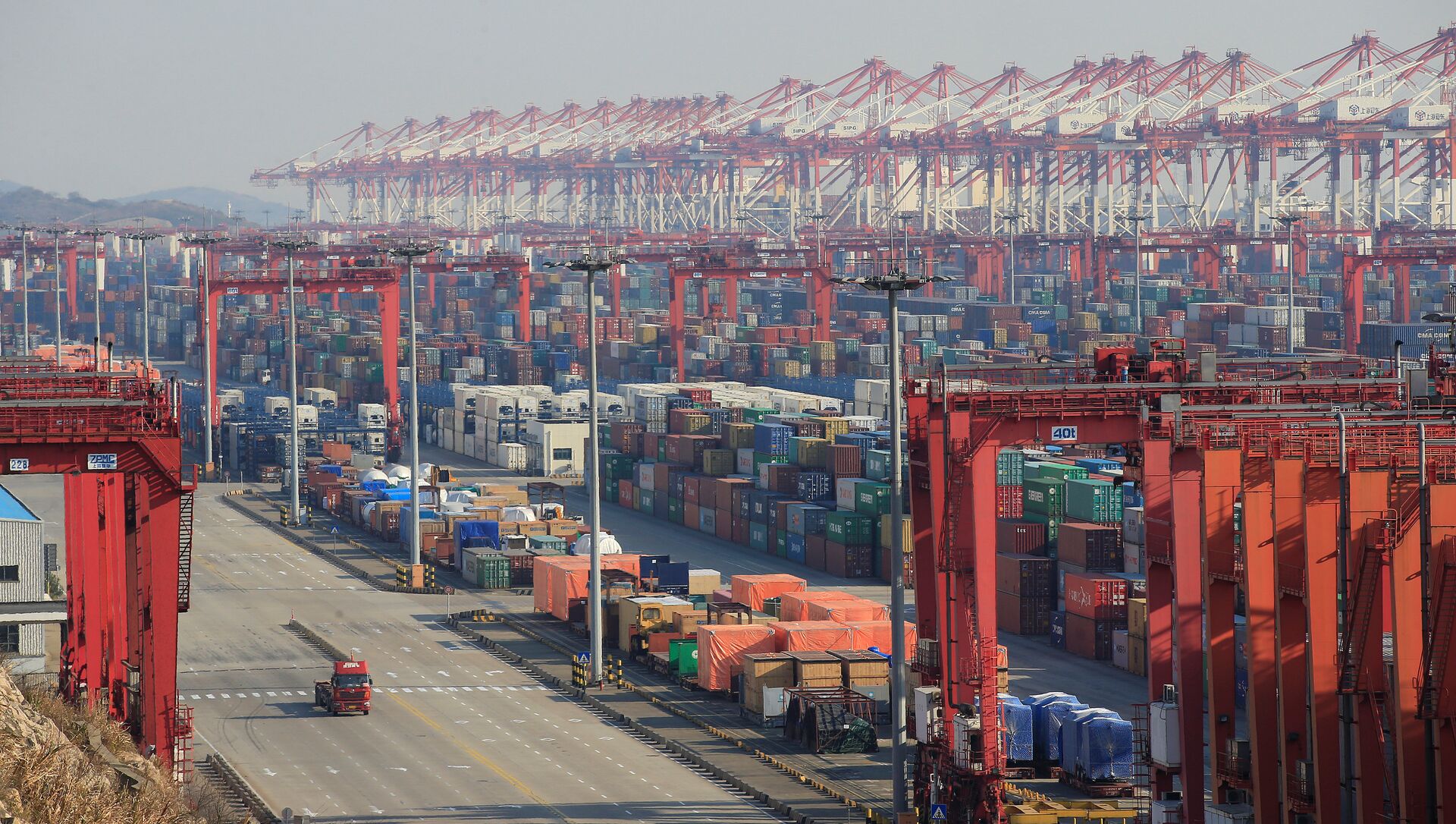On Wednesday, Chinese Vice Premier Liu He and US Trade Representative Katherine Tai, spoke on the phone about the status of both nations’ implementation of the January 2020 trade deal in which China pledged to buy a minimum amount of different products from the US in exchange for lowered tariffs.
Their separate statements are remarkably similar, but neither gives significant details about the precise content of their talks.
“During their candid exchange, Ambassador Tai discussed the guiding principles of the Biden-Harris Administration’s worker-centered trade policy and her ongoing review of the US-China trade relationship, while also raising issues of concern,” a readout by Tai’s office says. “Ambassador Tai noted that she looks forward to future discussions with Vice Premier Liu.”
According to China’s Global Times, the Chinese Ministry of Commerce said Tai and Liu conducted "candid, pragmatic and constructive exchanges with an attitude of equality and mutual respect.”
"Both sides believe that the development of bilateral trade is very important, and exchanged views on each other's issues of concern and agreed to continue to maintain communication," the ministry statement added. They are required to consult on their joint progress on the deal every six months.
The deal aimed to settle an 18-month-long trade war between Washington and Beijing that then-US President Donald Trump had intended to even out the US trade deficit with China. While the agreement saw China agree to buy another $200 billion worth of various agricultural and manufacturing goods from the US over the following two years and sorted out some issues concerning intellectual property rights, some $360 billion worth of annual US tariffs remained in place against Chinese goods from industries that receive state subsidies.
However, just two months after the deal was reached, the World Health Organization declared the COVID-19 novel coronavirus outbreak to be a global pandemic, and the unprecedented shutdowns in travel and trade put a severe hindrance on the two nations’ abilities to adhere to the deal. By the end of 2020, Chinese imports were just 58% of what they were anticipated to become back in January, according to data collected by the Peterson Institute for International Economics, a Washington, DC-based think tank.
China’s economy opened up much earlier than the United States’, setting record export increase rates in the fourth quarter of 2020 and swelling China’s trade surplus with the US even higher, thanks to sales of pandemic necessities like masks and medical equipment. However, even by the end of April, the Peterson Institute’s data shows China’s increased imports of US products at 73% of where they should be by this time.
According to US government statistics, in the first three months of 2021, the US had imported $73 billion more goods from China than it sold to China. For 2020, that number was $310 million, a decrease of $35 billion from 2019.
Gao Lingyun, an expert at the Chinese Academy of Social Sciences in Beijing who closely follows trade issues, told the Global Times on Thursday that the problem isn’t on China’s end.
"China has been pushing to fulfill its part of the phase-one deal, including further opening up its market, and better intellectual property protection," Gao told the outlet, adding that "it has also been increasing purchase of US products, but the supply on the US side has been seriously hindered during the pandemic."
He Weiwen, a retired Commerce Ministry official who is now an executive director of the China Association of International Trade in Beijing, told the New York Times that “China is not violating that Phase 1 agreement,” adding the socialist country had made a sincere effort to hold up its end of the deal.



